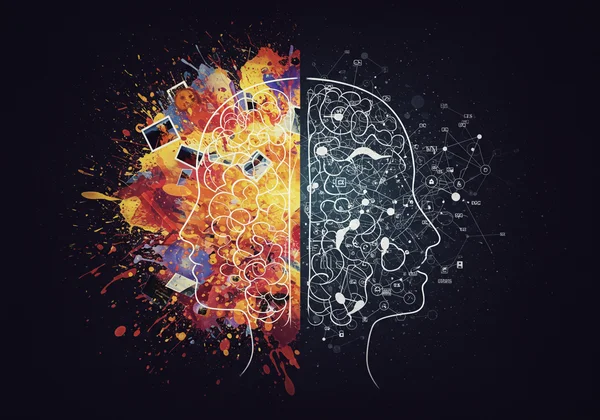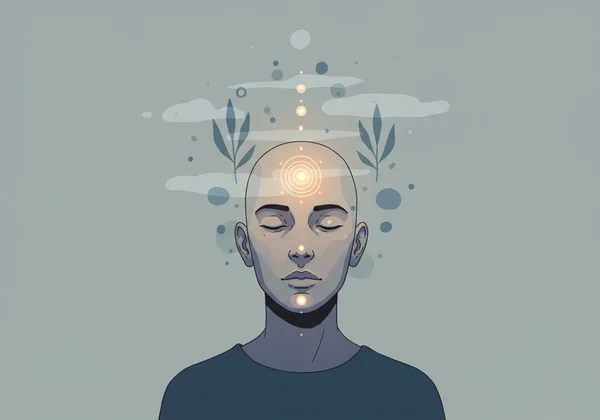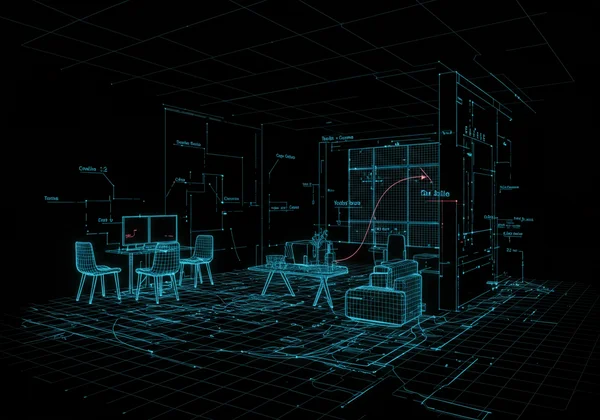What Are People with Aphantasia Good At? Strengths to Consider Before Your Aphantasia Test
So, you've just discovered the term "aphantasia" or taken an aphantasia test and realized your mind's eye works differently from others. This realization can be a whirlwind of emotions—confusion, validation, and perhaps a touch of isolation. Many people initially focus on what they might be "missing," but what if this unique cognitive style isn't a deficit, but a superpower in disguise? The core question many ask is, what are people with aphantasia good at? It turns out, this non-visual way of thinking comes with a remarkable set of advantages.
We're here to shift your perspective from perceived limitations to proven aphantasia strengths. We will explore the science-backed benefits that often accompany a mind that thinks in concepts, facts, and words rather than pictures. If you're still wondering about your own cognitive profile, you can always explore your mind's eye with a quick self-assessment. Let's turn that uncertainty into empowerment and discover the unique pros of aphantasia.
Unpacking the Pros of Aphantasia
Aphantasia, or the inability to voluntarily create mental images, is not a disorder but a fascinating variation in human cognition. It affects an estimated 2-4% of the population. At its core, it represents a fundamental shift in how the brain processes information. Instead of relying on a visual-mental sketchbook, the aphantasic mind often defaults to more abstract systems of thought.
Shifting from Visuals to Concepts
The primary adaptation in aphantasia is a move away from visual thinking toward conceptual thinking. While a visualizer might picture an apple to understand it—its color, shape, and sheen—an individual with aphantasia processes "apple" as a collection of facts and concepts. They know it's a fruit, it grows on trees, can be red or green, tastes sweet or tart, and has a specific texture. This abstract, data-driven approach is the foundation for many of the unique skills and strengths that we are about to explore.

Aphantasia Strength #1: Superior Abstract and Logical Reasoning
One of the most significant aphantasia strengths is a heightened ability for abstract thought and logical reasoning. By not being tied to or distracted by mental imagery, the mind is free to engage directly with concepts, systems, and data. This creates a cognitive environment where logic can flourish without the emotional or contextual baggage that visuals sometimes carry.
Thriving in Fact-Based Fields like Coding and Math
It's no surprise that many people with aphantasia report excelling in fields that demand abstract, systematic thinking. Professions like computer programming, mathematics, engineering, and philosophy rely on understanding complex systems, logical rules, and abstract relationships—not on visualizing the outcome. The brain's resources are dedicated to processing the logic of the code or the elegance of an equation, rather than generating a mental picture of it. If you suspect your cognitive style leans this way, taking a mind blindness test can be an enlightening first step.
How Non-Visual Thinking Reduces Cognitive Bias
Visual information can be incredibly persuasive and, at times, misleading. The vividness of a mental image can give it an undue sense of reality or importance, a phenomenon known as the availability heuristic. Because individuals with aphantasia don't generate these compelling mental pictures, they may be less susceptible to certain cognitive biases. Their decisions are more likely to be based on a sober assessment of facts and data, leading to more objective and rational conclusions.
Aphantasia Strength #2: Living in the Present Moment
Another of the remarkable aphantasia benefits reported by many is an enhanced ability to live in the present. Without a constant stream of mental images from the past or worries about the future being visualized, the mind can remain more grounded in the here and now. This trait is often associated with mindfulness practices, but for many with aphantasia, it is their natural state of being.
Less Mental Clutter from Unwanted Visuals
For many, the mind can be a noisy place, filled with distracting daydreams or intrusive images of past negative experiences. People with aphantasia often report a calmer, quieter internal landscape. This "less mental clutter" can be a profound advantage, particularly for mental well-being. It may contribute to lower levels of anxiety and a reduced likelihood of reliving traumatic events through visual flashbacks, as noted in some preliminary studies.

Aphantasia Strength #3: A Unique Approach to Memory
How do people with aphantasia remember things? This is a common question, and the answer reveals another strength. While episodic memory—the vivid, movie-like recall of personal events—may be different, aphantasia memory often excels in other areas. The brain compensates by developing a highly efficient system for storing and retrieving information differently.
Relying on Semantic and Factual Recall
Instead of re-watching a memory, the aphantasic brain recalls a list of facts about it. Ask about a beach vacation, and instead of a mental picture of the sunset, you'll get a factual report: "We were in Hawaii, the sand was coarse, it was humid, and I felt relaxed." This reliance on semantic and factual recall can make for an incredibly accurate and reliable memory for data, names, dates, and concepts. It's a memory built on knowledge, not just sensory replay. If you're curious about your own memory style, our free aphantasia test can offer valuable insights.
Aphantasia Strength #4: Enhanced Sense of Self and Identity
Our identity is woven from the tapestry of our memories and experiences. For those with aphantasia, this tapestry is constructed with different threads. Without strong visual replays of the past, a person's sense of self is often built upon a more concrete and stable foundation of principles, actions, and learned knowledge about oneself.
Building Identity on Principles, Not Pictures
A visual memory can be colored by emotion, nostalgia, or regret, sometimes distorting our perception of past events and, by extension, ourselves. An identity built on semantic recall is based on a consistent narrative of what happened and what was learned. This can lead to a very robust and unwavering sense of who you are, grounded in your values and actions rather than the fluctuating feelings associated with visual memories.
Aphantasia Strength #5: Sharpened Senses and Spatial Skills
When the brain doesn't dedicate resources to one sensory modality, it often enhances others—a phenomenon known as cognitive compensation. Many individuals with aphantasia report that their other senses, such as hearing or touch, or other cognitive skills, like spatial awareness, are more acute.
Compensatory Cognitive Strengths
This isn't just a feeling; it's a logical adaptation. An aphantasic mind might develop an incredibly strong inner monologue, a deep appreciation for music, or a highly refined sense of physical space. They may not "see" the furniture in a dark room, but they "know" precisely where it is. This spatial awareness is a form of knowing that operates independently of visual imagery, demonstrating the brain's remarkable ability to map the world in different ways. An aphantasia self-assessment can help you begin to map your own unique cognitive strengths.

Disclaimer: This article is for informational purposes only and is not a substitute for professional medical or psychological advice, diagnosis, or treatment. If you have concerns about your cognitive health, please consult a qualified professional.
Embrace Your Unique Mind: Your Aphantasia Is an Advantage
Discovering you have aphantasia is not about finding a deficit; it's about uncovering a different, equally valid way of experiencing the world. From superior logical reasoning and a calmer mind to a rock-solid memory for facts and a strong sense of self, this cognitive style is packed with hidden advantages. It's a testament to the incredible neurodiversity of the human brain.
Ready to understand your own cognitive profile? Our free aphantasia test is the perfect place to start. Take our free test today to explore your mind's eye. Share your thoughts and experiences in the comments below—your journey could inspire someone else!
Frequently Asked Questions About the Pros of Aphantasia
Are there any pros to having aphantasia?
Absolutely. As this article explores, the pros of aphantasia are significant. They often include enhanced abstract and logical reasoning, a greater ability to stay present, reduced mental clutter, a strong factual memory, and a stable sense of self. It's a cognitive style with its own unique set of powerful advantages.
Do people with aphantasia have an inner monologue?
Yes, and it's often very well-developed. Since thought isn't processed visually, many people with aphantasia rely heavily on an internal monologue or conceptual, non-verbal thought. This internal voice can be a powerful tool for thinking, reasoning, and processing information.
Is aphantasia considered neurodivergent?
Yes, aphantasia is widely considered a form of neurodivergence. Neurodiversity is the concept that variations in the human brain regarding learning, attention, mood, and other mental functions are natural and not deficits. Like autism or ADHD, aphantasia represents a different way of processing the world, not an incorrect one. Understanding this can be empowering and helps frame it as a unique part of your identity. To explore this further, consider taking an online aphantasia test.